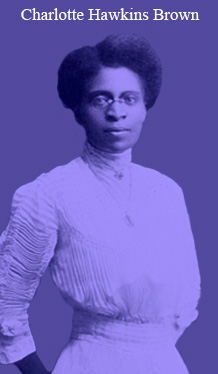Join a local genealogy group. They often sponsor workshops to get interested people involved in genealogy and offer helpful tips for beginners, intermediate and advanced level learners. Many times you will be paired with a “buddy” to help guide you along the way.
Read books about genealogy. It’s always best to have some basic knowledge before delving into your research. Here are two to get you started:
- Burroughs, Tony. Black Roots: A Beginner’s Guide to Tracing the African American Family Tree. New York: Simon & Schuster, 2001.
- Thackery, David T. Finding your African American Ancestors: A Beginner’s Guide. Orem, UT: Ancestry, 2000.
Get Organized. You will need the following basic tools and materials during the course of your research
- Desktop or laptop computer
- Acid free folders and paper-can be purchased at your local print shop or ordered on-line
- Pedigree (Generation Charts) and Family Group Sheets-can be printed for free at familyhistory.org
- Pens, mechanical pencils
Narrow the focus of your research.
Decide if you want to research your mother’s or father’s side of the family, and then, if you want to focus on their maternal or fraternal side or both.
Start with yourself and work backwards. Proceed from the known to the unknown; from the present to the past, one generation at a time. Record (in pencil) everything you know about yourself and family members on pedigree charts and family group charts.
Begin with the pedigree chart by listing key information that you know about you, your parents, grandparents, great grandparents, etc. These are your direct ancestors. Some things you will not know; but don’t be perturbed. That’s why you are doing genealogical research-to fill in what you don’t know.
THE PEDIGREE CHART WILL BE YOUR KEY GUIDE THROUGHOUT YOUR RESEARCH.
Then fill out a Family Group Sheet for your parents, grandparents, great grandparents, if you know them. For each pair that you know or as you discover them, fill out the Group Sheet where you will list their sisters and brothers (collateral ancestors) in order of birth and other key information about them. Again, there will be many blanks, which you will get filled in over time.
Interviews
Genealogy is more than gathering facts and dates e.g., date/ place of birth, marriage, death or other events. It is the personal stories that bring family research alive, much of which can be gathered through interviews with relatives, friends, co-workers, church members, ministers, etc. Recognize that information in interviews may or may not be true and must be verified.
- It is important to interview older people first because another day of life is not promised and memory loss occurs as we grow older.
- Record the date/time/ name of interviewee.
- Interviews may be over the phone/virtual –ZOOM/ or in person.
- Record the interview using a device such as tape player or cell phone; and write/type information a backup, should something happen to recording device.
- Make the Interviewee comfortable. Explain your interview process and seek interviewee’s permission.
- Have a set of questions already prepared.
Locate Family Records/Documents
Explore what’s close at hand.
Look for the existence of a family Bible, photo albums, birth, marriage, divorce, death certificates, school records, old family letters, medical records, diaries or journals. Talk to family members.
Locate Public Records
Important Websites
Family Search: https://www.familysearch.org
Ancestry: https://www.ancestry.com
Findmypast: https://www.findmypast.com
My Heritage: https://www.myheritage.com



